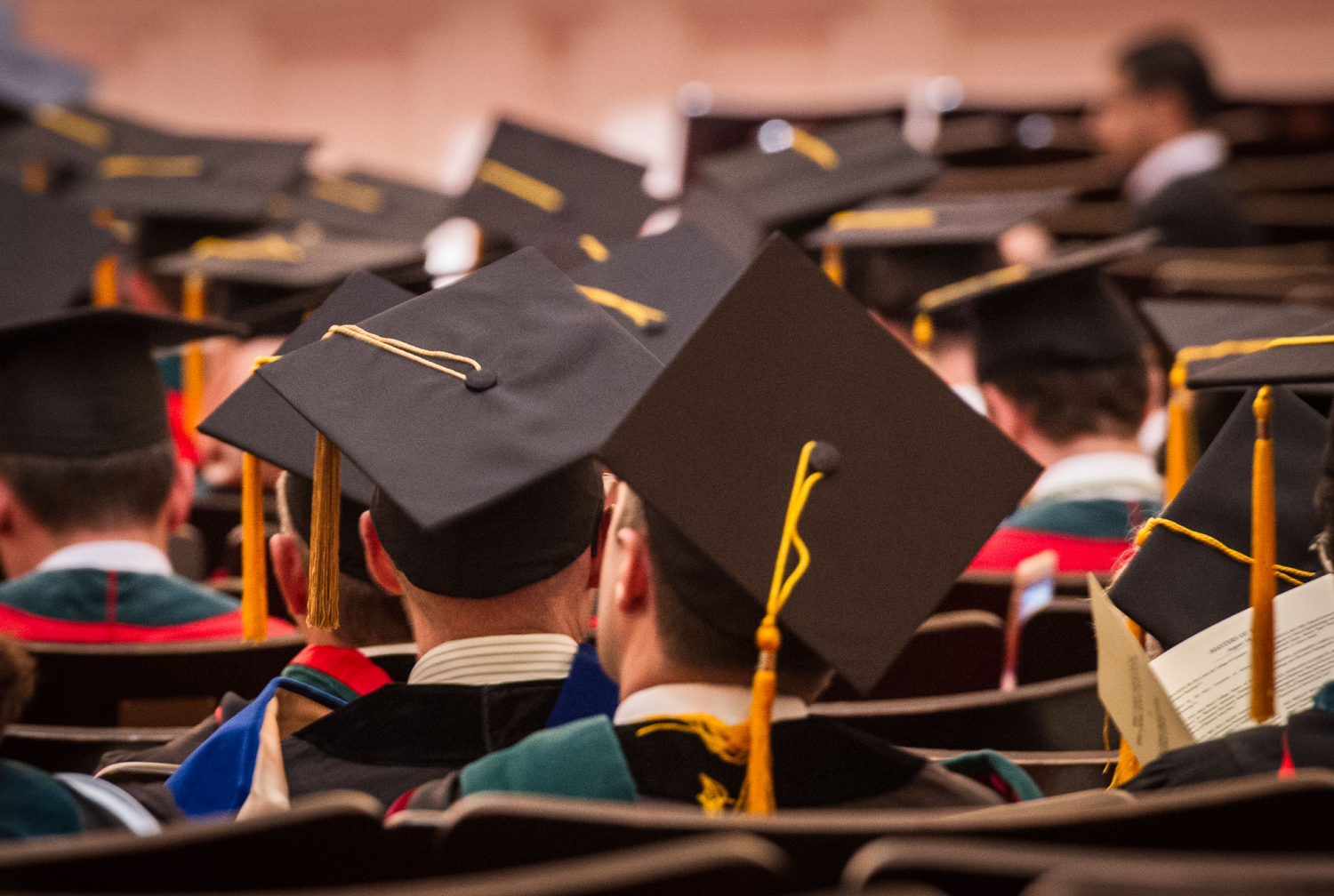When Alec Swinburne reflects on his four years at Weill Cornell Medical College, he fondly recalls the late nights he and his classmates spent mapping and mastering Latin names in the anatomy lab. He reminisces about their camping trips upstate where they dug barbecue pits and roasted whole lambs together in the woods, and he laughs about their monthly "medical Spanish club" trips to Cuban jazz shows downtown. But above all he's reminded of the intense discussions they shared working through their most complex medical cases. Every day these discussions spilled over from hospital workrooms to buses, from tutor groups to each other's couches. And this is why when Swinburne and his classmates cross the Carnegie Hall stage during commencement on May 28 as newly minted physicians, the personal accomplishment they each celebrate will also be the collective accomplishment they share.
Through its curriculum, Weill Cornell taught Swinburne the fundamentals of medicine that will inform his practice for decades. However, it is Swinburne's interactions with his teachers, his patients and especially his classmates that have inspired him to provide the best, most compassionate clinical care.
Swinburne, 31, of Rochester, N.Y., was elected by his peers to address them at commencement, but feels he has them to thank. "You learn how to build relationships from your class, how to talk to your classmates about medical problems, how to listen," he said. "This then becomes the way you listen and talk with your patients. These core skills develop out of the relationships you build in medical school, when you are being pushed and pulled by your peers working towards your common goals."
Swinburne sees his identity as a physician as a composite of his colleagues and friends and the diverse backgrounds they brought to Weill Cornell. In his class he found people who had done brilliant work as scientists and engineers, he said, but also more unexpected classmates, like his roommate who worked as a fiction editor for years before going to medical school. Looking back at his time learning together with a lead dancer from the Pennsylvania ballet, a Broadway pianist, an art photographer and a U.S. Naval pilot, the diversity of experience in his class still astounds him.
Swinburne, too, took an untraditional route to medical school. He went to Princeton University planning to study jazz performance and mathematics but changed majors to religious studies focusing on social criticism and urban politics in America. After graduation, Swinburne worked as a fellow in the Princeton Project 55 public interest program, serving as a teacher and development director at St. Mark the Evangelist, a small Catholic K-8 school in Harlem. His time at St. Mark's reaffirmed his passion for teaching and community work, but he left New York after his fellowship to study anthropology as a graduate student at the University of Chicago. When he found that he missed the daily connections he built as a teacher, he left Chicago for California, where he resumed work as a teacher and fundraiser for educational non-profits.
Medicine finally came to him when a friend tipped him off about a volunteer position in the San Francisco General Hospital Emergency Department. "Everyone comes to the emergency room," he said. "Every social world is compressed there in all these adjacent, simultaneous microdramas. You'd get a kid who crashed his bike in the room next to a homeless woman in preterm labor down the hall from someone's grandfather who just had a stroke.
"My small job had two parts: do chest compressions in codes and otherwise just attend to the patients and families as their various emotional crises bubbled over throughout the unit," he added. "Even in this role, it just struck me that the variety of life I saw in one ED hour was more interesting than what I'd see in a month at any of my regular jobs."
After completing a quick, patchwork post-baccalaureate through various University of California, Berkeley programs, Swinburne enrolled at Weill Cornell, where he became active in student life. He was elected president of his class and joined Motivating Action through Community Health Outreach — or MAChO — a student organization that partners with education programs in New York City to prevent childhood obesity.
During his four years he developed key friendships with his classmates and faculty mentors, who have made his time at the medical college memorable. He's been a student and a teacher, a friend and a colleague. These interactions — professional and personal — have inspired him and kept him motivated.
Swinburne and his classmates will soon scatter across the country to embark on the next step in their medical journeys — he will start a residency in internal medicine at the University of California, Los Angeles David Geffen School of Medicine in June — and commencement represents the last time they will all be together. But no matter where their careers take them, they will always be connected to each other.
"Whatever I'm able to give to my future patients, students and colleagues elsewhere," he said, "will be thanks, in large part, to what these people have given me."

